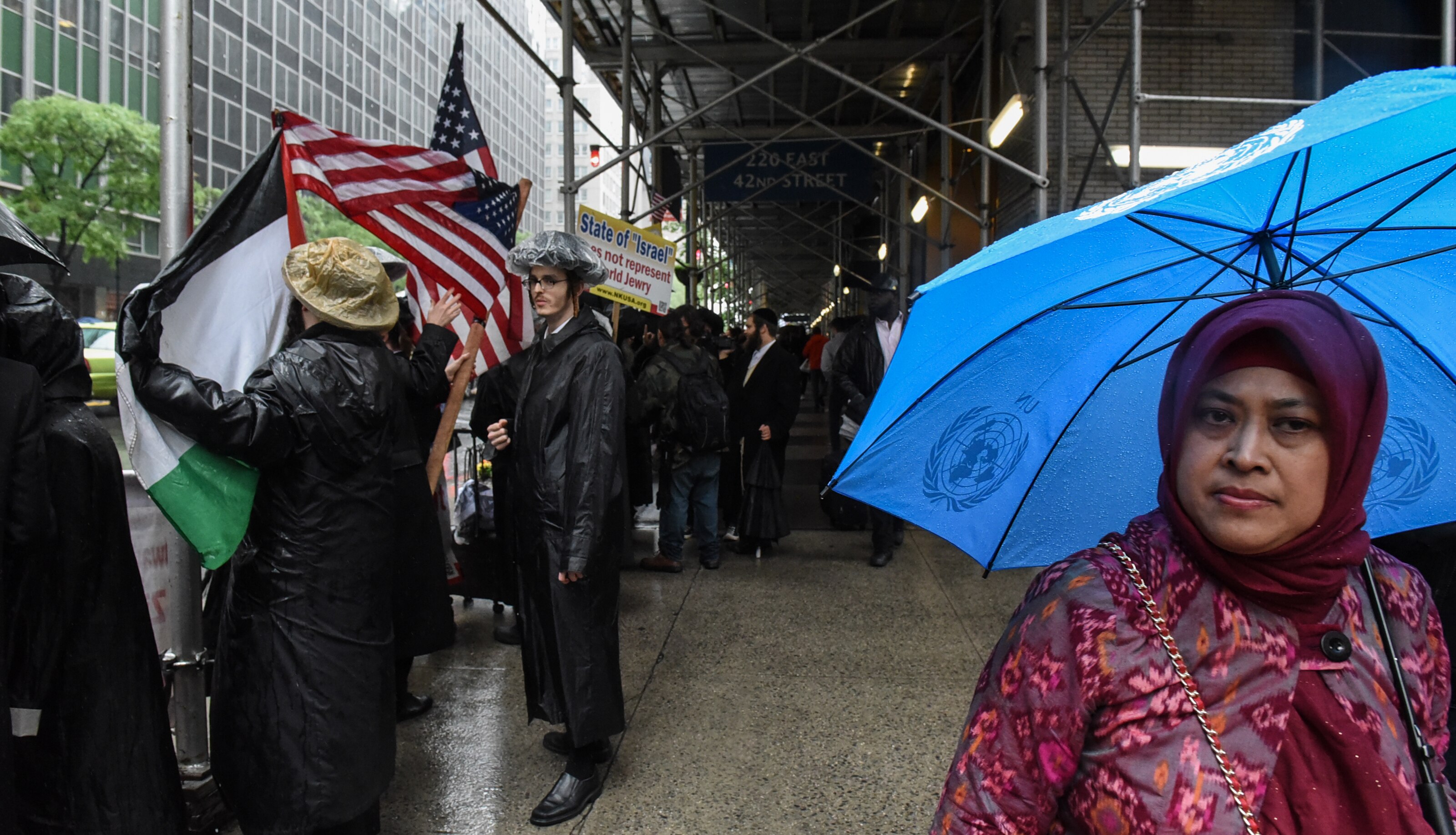Create a free profile to get unlimited access to exclusive videos, breaking news, sweepstakes, and more!
Why Don’t 71% Of New Yorkers Report Religion-Based Discrimination?
The new survey from the NYC Commission on Human Rights also shows Black Muslim women in the Bronx are at a higher risk of being physically assaulted.

In a survey carried out by the NYC Commission on Human Rights that measured racial and religious discrimination faced by New Yorkers who are Jewish, Muslim, and Sikh, 71% said they don’t report discrimination when it happens.
The report, released last month, was based on findings from 3,105 respondents of Jewish, Muslim, and Sikh backgrounds.
Many don’t report such incidents because of fear of reprisal, or because they feel that no one will take them seriously, according to the report.
Often, people aren’t sure what they can do about such discrimination or what the police would do upon learning about them, Melanie Robbins, Director of Community Engagement at the Anti-Defamation League (ADL) told Oxygen.com.
“We talk about hate crimes and bias crimes as ‘message’ crimes,” said Robbins. “So what’s so important about reporting it is that [a] hateful act doesn’t just impact that victim, it sends a message to a community.”
The study says that 80% of Jewish New Yorkers are affected by vandalism.
“When we see an increase in anti-Semitism, it’s almost taking a pulse of what’s happening in our country,” Robbins said. “We can only imagine how targeted other communities are feeling.”
For many, the line is blurry as to what counts a hate crime or an offense, which might make it difficult for them to acknowledge it — much less, report.
“It’s hard for many Americans to know where daily acts of hate speech or bias incidents legally cross the line into a reportable offense,” Robert McCaw, Government Affairs Director at Council on American-Islamic Relations (CAIR), told Oxygen.com.
Of the respondents, about 50% were of Muslim faith, around 31% Jewish, and 10% Sikh. The report also found that those who wear religious clothing — common in all three faiths with the hijaab for Muslim women, kippah for Jewish men, and the turban for Sikh men — run a high risk of being discriminated for their faith.
Black Muslim women, especially those living in the Bronx, are highly likely to face assaults, with nearly 20% of them at risk. Overall, around 12% of respondents who wear religious clothing are at risk of being physically assaulted, which is twice more than those without religious clothing. About 19% of respondents who wear religious gears said they have been shoved on the New York City subway, though it is unclear if this was because of the clothing.
“Anecdotally, I am not aware of any Muslims in the U.S. who have not been subject to some form of harassment or discrimination in either their schools, workplace or out in the public,” said McCaw. “The anti-Muslim, white supremacist rhetoric of the Trump Administration has only emboldened those who harbor hate and prejudice to act out against all religious and other minority communities in this country, thinking to themselves that they are unaccountable.”
Other factors may also contribute to why the victims refrain from reporting. Often, how the first responder addresses a hate-crime can have a long-lasting effect on the victim, says Melanie Robbins. “And so one of the parts of the training that we do is making sure that law enforcement understands their role in validating what the concern of the community was,” she said.
The report makes some policy recommendations, such as implementing a bystander intervention program for city employees and increasing the city’s outreach programs for observant religious groups, among others.
[Photo: A woman wearing a hijab walks past an Alt Right protest in April 2017 in New York, NY. By Stephanie Keith/Getty Images]














